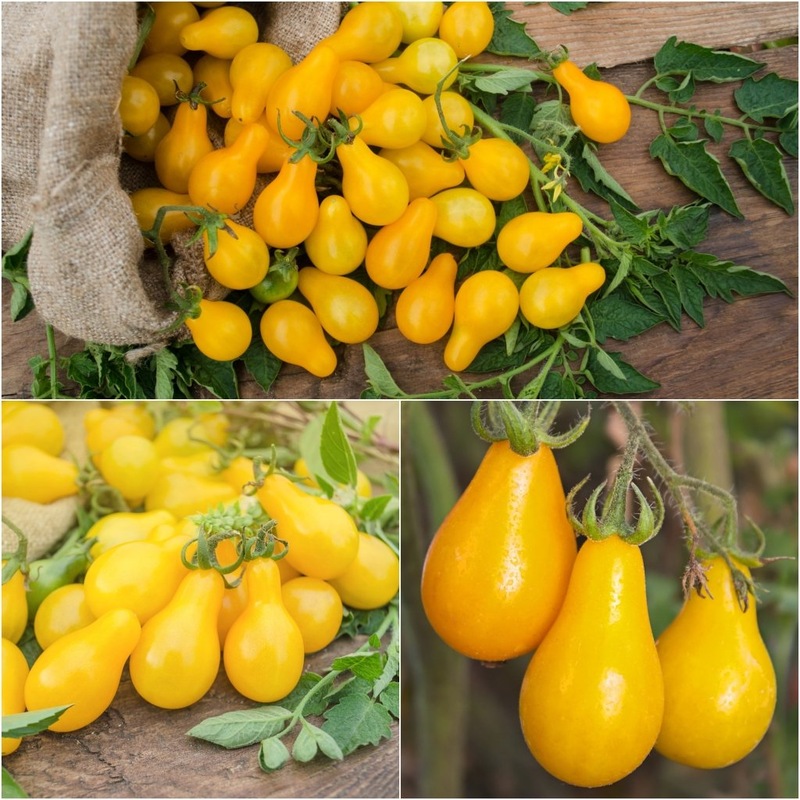Our Seed Guarantee
We sell only the highest quality seed that has been carefully grown, selected, picked and packed for you. We guarantee that the seeds will germinate for six months from the purchase date, if you store them as indicated on this page further down and follow the individual seed packets growing instructions.
If you have problems with seed germination not due to the weather, gardening abilities or animals, we will gladly work with you to determine the cause and send replacement seeds if necessary. If the underlying problems affecting the seeds germination are not corrected, you won't have any better results with new seed than the first time! Specific planting information is needed to help us diagnose and help correct the reasons for poor germination. Typically when there are challenges in germination, there are a few main reasons – temperature, soil moisture levels and timing.
Please give us specific information about your germination problems; we are here to help! The more detailed information you can provide (planting time, depth, soil moisture, soil temperature, weather conditions, etc.), the better we can help you.
Limitation of Remedy: Happy Valley Seeds is limited to the purchase price of the seeds, regardless of the nature, cause or extent of loss arising out of the purchase or use of its seeds.
Buyer’s sole and exclusive remedy shall be limited to a refund of amounts paid for seeds. In no event shall Happy Valley Seeds be liable for consequential damages. By placing an order and accepting a product, Buyer agrees to the above terms and conditions.
QUARANTINE RESTRICTIONS
Unfortunately we do not know all quarantine restriction that may be applicable to your country or state therefore all orders are shipped on the understanding that we have no control over any restrictions whatsoever and this responsibility is with the buyer to ensure they have the necessary approval to import seed into their country or state.
We cannot be responsible for shipping delays, quarantine impoundments or lost or stolen items. Once we ship an order it becomes the property of the carrier and recipient of that order, no further liability is excepted by Happy Valley Seeds for customs or quarantine related problems.
We're really sorry for the inconvenience, but due to high volume of orders and our automated shipping process we cannot always monitor or cross reference items travelling into WA or TAS.It is important and the responsibility of each customer to be aware of their state’s import rules for seeds/plant matter.
Please refer to your state’s biosecurity restrictions for importing seeds.
We accept no responsibility for any inspection fees or fines incurred due to customers importing seeds that require quarantine inspections, or that violate the state’s import rules.
Phytosanitary Certificates
Some countries may require a Phytosanitary Certificate when you import the seeds.
We do not provide a phytosanitary certificates. The cost of obtaining a phytosanitary certificate is prohibitive and start at around $1,500. They also take around 5-6 weeks to arrange. Please contact your local authority to confirm the requirements for importing the seed of the species you require. Any seeds shipped to a foreign country are shipped at the buyer's risk, as we cannot assume losses from seeds that are stopped and/or destroyed at the customs offices of these countries.
SAFE SEED STORAGE
One of the factors that most influences the germination rate of seeds is how they are stored. Like the plants that produce them, seeds come in all sorts of forms and sizes. They are also variable in their longevity. Since seed packets often contain more seeds than might be needed in one season, it’s important for gardeners to learn how to store seeds.
Vegetable seeds that are considered “long-lived” include the Brassicas (broccoli, Brussels sprouts, cauliflower, cabbage, collards, kohlrabi…) the chicory group (endive, escarole, radicchio), cucumber, kale, lettuce, melons, mustards, chillies, radish, rutabaga, sunflower, tomato and turnips. Stored correctly, these seeds should maintain a good viability for more than five years.
“Medium-lived” varieties include beans, carrots, celery, chard, eggplant, parsley, peas, pumpkin, salsify, and squash. These varieties, if properly stored, should last up to five years.
“Short-lived” seeds include corn, leek, onion, parsnip, and spinach. These are generally not recommended for more than one season, although they may maintain acceptable germination rates in the second year.
Pelleted seeds should be bought fresh each year.
Some tricks to keeping seeds and getting the best germination:
The secret to successful seed storage is “cool and dry.” As soon as your seeds arrive, store them immediately in an airtight container in a cool spot, away from any obvious heat source, and out of the sunlight. Try and store them at 4 – 10°C. Some people like to include desiccant packets with their seeds to ensure a dry environment. One other trick is to wrap a teaspoon of milk powder in a piece of tissue, and use this the same way. This will absorb any available moisture in the airtight container.
Only ever use sterilised starting mix when starting seeds indoors. Regular soil is teeming with microbes, including certain fungi that can cause damping off of seedlings, and bacteria that can harm the seeds themselves.
Once the seeds are planted, keep the temperature constant. Aim for continuous temperatures of 20 – 24°C both day and night.
Once the seeds are planted, never let them dry out. Seeds absorb oxygen as they germinate, so too much water can deprive them of this vital gas. Aim to keep the soil evenly moist. Seed starting soil is designed to provide both water retention and drainage.
Ventilate seedlings. One mistake that is easy to make is to leave the plastic dome over seedling trays on a hot, sunny day. If there is significant condensation on the plastic dome, remove it or prop it open to allow air to get in and out. On a sunny day, seedling tray domes can actually steam your seedlings.
Finally, harden seedlings off before transplanting them outdoors. Sudden plunges into cold, damp conditions can cause enough stress on young plants to cause severe stunting or death. Make the transition gradual. Using a cold frame or cloche works well.
Safe Seed Pledge
We pledge that we do not knowingly buy or sell genetically engineered seeds or plants.
Return & Refund Policy
Return & Refund Policy
At Happy Valley Seeds, we strive to ensure your satisfaction with every purchase. If you're ever unsatisfied for any reason, please don't hesitate to reach out and let us know - we'd be more than happy to provide an exchange or refund according to these conditions:
To be eligible for a return, your item must remain unused and in the same condition at which you received it. Additionally, it should retain its original packaging.
Unfortunately, we cannot accept exchanges or refunds on perishable items unless they are damaged.
For optimal satisfaction, you can return or exchange your purchase within 30 days of receiving it.
If you need to cancel an order you haven't picked up within 2 weeks after first delivery attempt, we'll need to charge a 20% restocking fee based on the seed value. Once we receive your mail order back, we will process the refund, minus the 20% restocking fees. Unfortunately, we won't be able to refund the postage, though.
If the buyer wants to change his/her mind, then the cost of returning the order will be covered by the buyer.
At Happy Valley Seeds, we are more than happy to cover the cost of return shipping for any damaged goods.
For a return authorisation number and address information, please email us and we will be happy to provide you with the necessary details.
It is important to remember that our returns policy does not diminish your rights as protected by Australian Consumer Law.
All marketplace products are covered by our MyDeal Refund Guarantee
Learn More
































